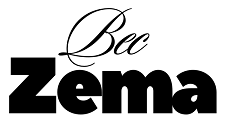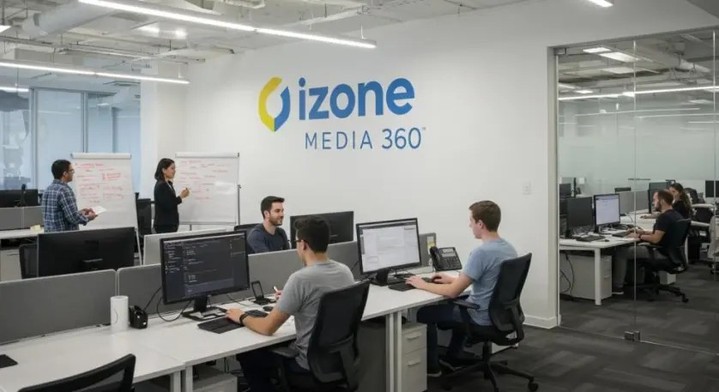https://noticviralweb.blogspot.com/2024/05/mejores-seguros.html
Finding the right insurance coverage can feel overwhelming, especially with so many options available in today’s market. Whether you’re a first-time buyer or looking to switch providers, understanding your insurance options is crucial for protecting your financial future. This comprehensive guide will help you navigate the complex world of insurance and find the coverage that best fits your needs and budget.
Insurance serves as a financial safety net, protecting you from unexpected costs that could otherwise devastate your savings. From health emergencies to car accidents, having the right coverage ensures you’re prepared for life’s uncertainties. The key is knowing which types of insurance are essential and how to find the best providers in your area.
Understanding Different Types of Insurance Coverage
Insurance comes in many forms, each designed to protect different aspects of your life and property. The most common types include health insurance, auto insurance, homeowners or renters insurance, and life insurance. Each serves a specific purpose and offers varying levels of protection depending on your individual circumstances.
Health insurance covers medical expenses and is often considered the most important type of coverage. Without it, a single hospital visit could result in thousands of dollars in medical bills. Auto insurance is legally required in most states and protects you from liability in case of accidents. Homeowners insurance protects your property and belongings, while life insurance provides financial security for your loved ones after you’re gone.
Understanding these basic categories helps you prioritize which coverage to obtain first. Most financial experts recommend securing health and auto insurance as your primary concerns, followed by property insurance if you own a home, and life insurance if you have dependents. The specific amount and type of coverage you need depends on your personal situation, income level, and risk tolerance.
Health Insurance: Your Most Important Investment
Health insurance stands as arguably the most critical form of protection for American families. Medical costs continue to rise, making comprehensive health coverage essential for financial stability. Without proper health insurance, even routine medical care can become prohibitively expensive, and emergency treatments can lead to bankruptcy.
The Affordable Care Act (ACA) marketplace offers numerous health insurance options, including Bronze, Silver, Gold, and Platinum plans. Bronze plans typically offer lower monthly premiums but higher deductibles, while Platinum plans provide more comprehensive coverage with higher monthly costs. Consider your current health status, prescription medication needs, and preferred doctors when selecting a plan.
Employer-sponsored health insurance often provides the best value, as employers typically contribute to premium costs. If your employer offers health insurance, compare their plans carefully with marketplace options. Pay attention to networks of covered doctors and hospitals, prescription drug coverage, and out-of-pocket maximums. Many plans also offer additional benefits like dental and vision coverage, wellness programs, and telemedicine services.
When evaluating health insurance options, consider factors beyond just premium costs. Look at deductibles, copayments, coinsurance rates, and out-of-pocket maximums. A plan with a lower premium might cost more in the long run if it has high deductibles or limited coverage. Also, ensure your preferred healthcare providers are included in the plan’s network to avoid unexpected out-of-network charges.
Auto Insurance: Protecting Your Vehicle and Finances
Auto insurance is legally required in most states and protects you from financial liability in case of accidents. The minimum coverage requirements vary by state, but most require liability insurance that covers bodily injury and property damage to others. However, minimum coverage often isn’t sufficient to fully protect your assets in serious accidents.
Comprehensive auto insurance includes collision coverage, which pays for damage to your vehicle in accidents, and comprehensive coverage, which protects against theft, vandalism, and natural disasters. If you have a car loan or lease, your lender typically requires both types of coverage. Additionally, consider uninsured motorist coverage, which protects you if you’re hit by a driver without insurance.
Several factors influence your auto insurance premiums, including your driving record, age, location, and the type of vehicle you drive. Young drivers and those with poor driving records typically pay higher premiums. Sports cars and luxury vehicles also cost more to insure due to higher repair costs and increased theft risk. You can often reduce premiums by maintaining a clean driving record, bundling policies, taking defensive driving courses, and choosing vehicles with good safety ratings.
Shopping around for auto insurance can save you hundreds of dollars annually. Get quotes from multiple insurers and compare coverage options, not just prices. Look for discounts such as safe driver discounts, multi-policy discounts, and good student discounts. Many insurers now offer usage-based insurance programs that track your driving habits and offer discounts for safe driving behaviors.
Homeowners and Renters Insurance: Protecting Your Property
Homeowners insurance protects your property and belongings while also providing liability coverage if someone is injured on your property. Most mortgage lenders require homeowners insurance, and it’s wise protection even if you own your home outright. The coverage typically includes dwelling protection, personal property coverage, liability protection, and additional living expenses if your home becomes uninhabitable.
Standard homeowners insurance covers most common perils like fire, theft, and wind damage, but may exclude certain natural disasters like floods and earthquakes. If you live in an area prone to these disasters, you may need separate flood insurance or earthquake coverage. Review your policy annually to ensure your coverage amounts reflect current property values and replacement costs.
Renters insurance is often overlooked but provides valuable protection for tenants. While your landlord’s insurance covers the building structure, it doesn’t protect your personal belongings or provide liability coverage for accidents in your rental unit. Renters insurance is relatively inexpensive and covers personal property, liability, and additional living expenses if your rental becomes uninhabitable due to covered damage.
When selecting property insurance, consider replacement cost coverage rather than actual cash value coverage. Replacement cost coverage pays to replace items at current prices, while actual cash value coverage deducts depreciation. Also, document your belongings with photos or video for easier claims processing. Many insurers offer discounts for security systems, smoke detectors, and bundling with other policies.
Life Insurance: Securing Your Family’s Future
Life insurance provides financial security for your dependents after your death, helping them maintain their standard of living and meet financial obligations. The need for life insurance depends on your personal circumstances, but it’s generally recommended if you have dependents, significant debts, or want to leave money for specific purposes like education or charity.
Term life insurance provides coverage for a specific period, typically 10, 20, or 30 years, and is generally more affordable than permanent life insurance. It’s ideal for young families or those with temporary financial obligations like mortgages or children’s education expenses. Whole life insurance combines life insurance with an investment component, providing permanent coverage and cash value accumulation, but comes with higher premiums.
The amount of life insurance you need depends on your financial obligations and goals. A common rule of thumb suggests coverage equal to 5-10 times your annual income, but this varies based on your debts, dependents’ needs, and existing savings. Consider factors like mortgage payments, children’s education costs, and your spouse’s earning potential when determining coverage amounts.
When shopping for life insurance, compare quotes from multiple insurers and consider working with an independent agent who can show you options from various companies. Be honest about your health history and lifestyle, as misrepresentation can void your policy. Many employers offer group life insurance as a benefit, which can be a cost-effective way to obtain basic coverage, though it may not be sufficient for all your needs.
Disability Insurance: Protecting Your Income
Disability insurance is often overlooked but crucial for protecting your earning capacity. Short-term disability insurance typically covers 60-70% of your income for a few months to a year, while long-term disability insurance can provide benefits for years or until retirement age. Many people are more likely to become disabled than to die during their working years, making disability insurance an important consideration.
Employer-sponsored disability insurance may provide basic coverage, but it’s often insufficient to maintain your lifestyle. Consider supplemental disability insurance if your employer’s coverage is limited. When evaluating disability insurance, pay attention to the definition of disability used by the policy. Some policies only pay benefits if you can’t perform any job, while others pay if you can’t perform your specific occupation.
The cost of disability insurance depends on factors like your age, health, occupation, and the amount of coverage. High-risk occupations typically cost more to insure. Look for policies with cost-of-living adjustments to protect against inflation, and consider whether you want coverage that includes partial disabilities or only total disabilities. Some policies also offer additional benefits like rehabilitation services or return-to-work incentives.
Umbrella Insurance: Extra Protection for High-Net-Worth Individuals
Umbrella insurance provides additional liability coverage beyond what’s included in your auto and homeowners insurance policies. It’s particularly valuable for individuals with significant assets or high-income potential, as it protects against large liability claims that could exceed your standard policy limits.
Personal umbrella insurance typically starts at $1 million in coverage and can go much higher. It covers various liability situations, including auto accidents, injuries on your property, and certain personal liability claims. The cost is relatively low compared to the coverage provided, making it an attractive option for additional protection.
Consider umbrella insurance if you have substantial assets, engage in activities that increase liability risk, or have a high-income profession. Examples include owning rental properties, having teenage drivers, owning boats or recreational vehicles, or serving on boards of directors. The coverage is relatively inexpensive, often costing just a few hundred dollars annually for $1 million in coverage.
Choosing the Right Insurance Company
Selecting the right insurance company is as important as choosing the right coverage. Look for insurers with strong financial ratings from agencies like A.M. Best, Moody’s, or Standard & Poor’s. These ratings indicate the company’s ability to pay claims and remain financially stable over time.
Customer service quality is crucial when dealing with insurance companies. Research customer satisfaction ratings and read reviews from current and former policyholders. Pay attention to how companies handle claims, their response times, and their reputation for fair claim settlements. Some insurers are known for excellent customer service, while others may be more difficult to work with during claims.
Consider the company’s technology and digital capabilities, especially if you prefer managing your policies online or through mobile apps. Many modern insurers offer user-friendly digital platforms that make it easy to view policies, make payments, file claims, and access important documents. Some also provide additional services like roadside assistance, identity theft protection, or home security monitoring.
Getting the Best Insurance Rates
Shopping around is essential for finding the best insurance rates, as prices can vary significantly between companies for the same coverage. Get quotes from at least three different insurers, and consider both direct insurers and those that work through agents. Online comparison tools can help you quickly compare rates from multiple companies.
Bundle discounts can provide significant savings when you purchase multiple policies from the same insurer. Many companies offer discounts for combining auto and homeowners insurance, or for adding umbrella coverage to existing policies. However, make sure the bundled price is actually lower than purchasing separate policies from different companies.
Maintain good credit scores, as many insurers use credit information when setting rates. Safe driving records, home security systems, and loyalty to the same insurer can also result in discounts. Some companies offer usage-based insurance programs that track your driving habits or home security to provide personalized discounts based on your actual risk profile.
Review your insurance needs annually and adjust coverage as your circumstances change. Major life events like marriage, divorce, having children, buying a home, or changing jobs may require policy updates. Regular reviews ensure you’re not over-insured or under-insured and help you take advantage of new discounts or coverage options.
Understanding Insurance Policy Terms and Conditions
Insurance policies contain specific terms and conditions that determine what is and isn’t covered. Understanding these details is crucial for avoiding surprises when you need to file a claim. Key terms include deductibles, coverage limits, exclusions, and waiting periods.
Deductibles are the amount you pay out-of-pocket before insurance coverage kicks in. Higher deductibles typically result in lower premiums, but ensure you can afford the deductible amount in case of a claim. Coverage limits specify the maximum amount the insurer will pay for covered losses. Make sure limits are adequate for your needs and consider whether you need higher limits for certain types of coverage.
Exclusions are specific situations or types of damage not covered by your policy. Common exclusions include intentional acts, certain natural disasters, and pre-existing conditions in health insurance. Read exclusions carefully to understand what’s not covered, and consider whether you need additional coverage for excluded items.
Waiting periods apply to certain types of coverage, particularly health and disability insurance. These periods specify how long you must wait after purchasing coverage before certain benefits become available. Understanding waiting periods helps you plan for coverage gaps and avoid unexpected out-of-pocket expenses.
Common Insurance Mistakes to Avoid
Many people make costly mistakes when purchasing insurance that can leave them underprotected or paying too much for coverage. One common mistake is choosing coverage based solely on price without considering the quality of coverage or the insurer’s reputation. The cheapest policy isn’t always the best value if it doesn’t provide adequate protection or comes from an unreliable company.
Under-insuring is another frequent mistake, particularly with homeowners and life insurance. Many people underestimate replacement costs for their homes or fail to update coverage amounts as property values increase. Similarly, life insurance needs often change over time, and failing to adjust coverage can leave beneficiaries without adequate financial protection.
Failing to understand policy terms and conditions can lead to claim denials or unexpected out-of-pocket expenses. Always read policy documents carefully and ask questions about anything you don’t understand. Don’t assume all policies are the same, even if they appear similar on the surface.
Neglecting to update policies after major life changes is another common mistake. Marriage, divorce, having children, buying a home, or changing jobs can all affect your insurance needs. Regular policy reviews help ensure your coverage remains appropriate for your current situation and that you’re taking advantage of all available discounts.
Key Takeaways for Finding the Best Insurance Coverage
Finding the right insurance coverage requires careful consideration of your individual needs, financial situation, and risk tolerance. Start by identifying which types of insurance are essential for your circumstances, then research reputable insurers with strong financial ratings and good customer service records.
Compare quotes from multiple insurers to ensure you’re getting competitive rates, but don’t make decisions based solely on price. Consider the overall value, including coverage quality, customer service, and claims handling reputation. Look for opportunities to save money through bundling discounts, safe driver discounts, and other available incentives.
Review your insurance needs regularly and adjust coverage as your life circumstances change. Major life events often require policy updates to ensure adequate protection. Stay informed about changes in insurance regulations and new coverage options that might benefit you.
| Insurance Type | Essential For | Key Considerations |
|---|---|---|
| Health Insurance | Everyone | Network coverage, deductibles, prescription benefits |
| Auto Insurance | All drivers | State requirements, liability limits, collision coverage |
| Homeowners/Renters | Property owners/renters | Replacement cost, liability coverage, natural disasters |
| Life Insurance | Those with dependents | Term vs. permanent, coverage amount, beneficiaries |
| Disability Insurance | Income earners | Short-term vs. long-term, benefit amount, waiting period |
| Umbrella Insurance | High-net-worth individuals | Liability limits, asset protection, cost-effectiveness |
Remember that insurance is an investment in your financial security and peace of mind. While it may seem expensive, the cost of being uninsured or underinsured can be far greater. Work with knowledgeable insurance professionals who can help you understand your options and find the best coverage for your needs. For additional information about insurance and personal finance topics, visit comprehensive financial resources.
Frequently Asked Questions
Q: How often should I review my insurance coverage?
A: You should review your insurance coverage annually or whenever you experience major life changes such as marriage, divorce, having children, buying a home, or changing jobs. Regular reviews ensure your coverage remains adequate and that you’re taking advantage of available discounts.
Q: Is it better to have a high deductible or low deductible?
A: The choice depends on your financial situation and risk tolerance. Higher deductibles result in lower premiums but require you to pay more out-of-pocket when filing claims. Choose a deductible amount you can comfortably afford in case of a claim.
Q: Can I purchase insurance online, or do I need an agent?
A: You can purchase insurance both online and through agents. Online purchasing is convenient and often less expensive, while agents can provide personalized advice and help you understand complex coverage options. Consider your comfort level with insurance terms and your need for guidance when deciding.
Q: What happens if I miss an insurance payment?
A: Missing payments can result in policy cancellation, leaving you without coverage. Most insurers provide a grace period, but it’s important to make payments on time. If you’re having financial difficulties, contact your insurer to discuss payment options before missing payments.
Q: Should I file small claims or pay out-of-pocket?
A: Consider your deductible amount and potential impact on future premiums before filing small claims. If the claim amount is only slightly higher than your deductible, it may be better to pay out-of-pocket to avoid potential premium increases.
Q: How do insurance companies determine my rates?
A: Insurance companies use various factors to determine rates, including your age, location, claims history, credit score, and risk factors specific to the type of insurance. Each company weighs these factors differently, which is why rates can vary significantly between insurers.
Q: What’s the difference between actual cash value and replacement cost coverage?
A: Actual cash value coverage pays the depreciated value of damaged items, while replacement cost coverage pays the full cost to replace items at current prices. Replacement cost coverage is generally more expensive but provides better protection.
Q: Do I need umbrella insurance if I already have liability coverage?
A: Umbrella insurance provides additional liability coverage beyond your standard policies. It’s particularly valuable if you have significant assets or engage in activities that increase liability risk. The relatively low cost makes it attractive for additional protection.
Finding the best insurance coverage requires research, comparison shopping, and regular policy reviews. By understanding your needs and working with reputable insurers, you can secure comprehensive protection that provides peace of mind and financial security for you and your family.







